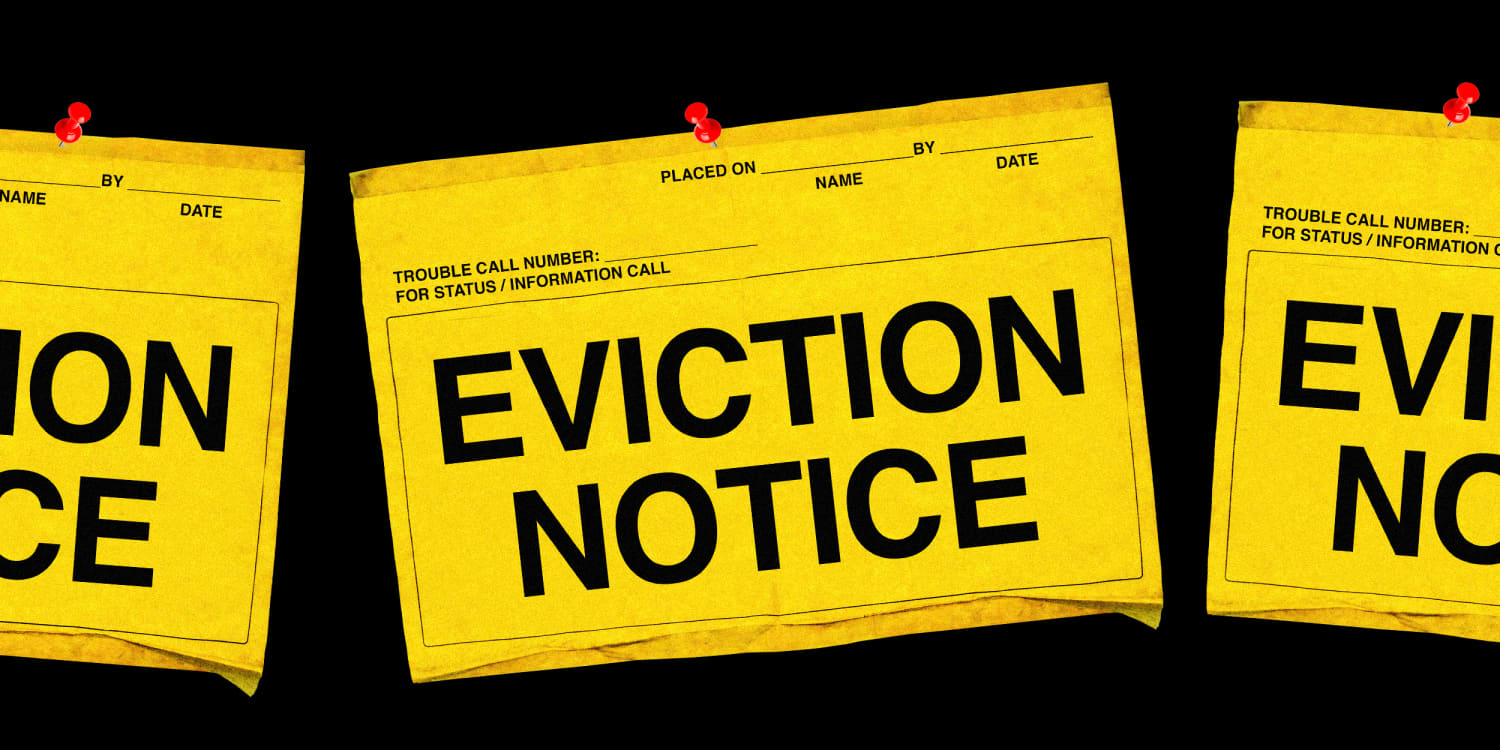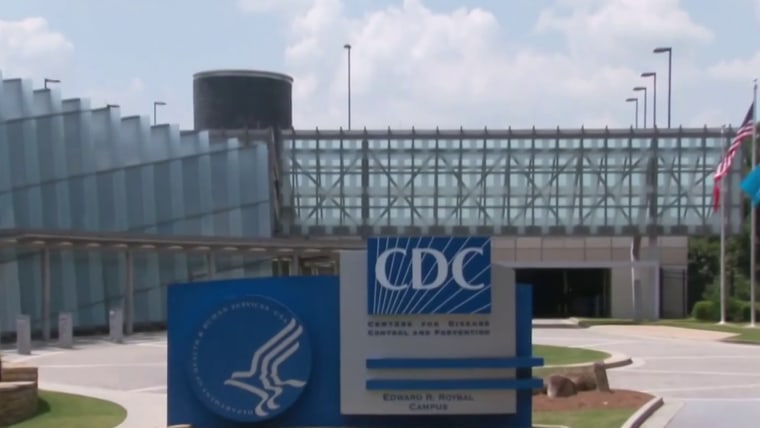JACKSON, Miss. — Many struggling tenants in Mississippi worry over what will come first: a constable at their front door ordering them to leave, or the arrival of desperately needed rental assistance that will allow them to stay.
More than 1 percent of Mississippians believe they are very likely, or somewhat likely, to move because of an eviction in the next two months, according to a recent Census Household Pulse Survey. The state and its two largest counties have received $200 million in federal Covid-19 relief funds to cover back rent, with the aim of preventing these evictions.
But the vast majority of that money has not been spent, and there are large disparities in who is receiving help, and how quickly they’re getting it, according to a review of the latest program data and interviews with experts and advocates.
In Hinds County, where close to three-fourths of residents are Black, officials had disbursed only 3 percent of its $7 million emergency rental assistance fund as of mid-June. In contrast, Harrison County, where 73 percent of residents are white, had pushed out more than half of its $6.2 million allocation, serving more than 700 renters. In both counties, about 20 percent of the community lives in poverty.
Mississippi’s statewide program to distribute federal funds has also gotten a slow start, spending less than 2 percent of the $186 million dedicated to helping tenants pay back rent, or past-due utility bills, as of June 24. The state has approved about one-fifth, or just over 900, of the 5,316 completed applications received so far.
Tenant advocates believe a lack of awareness about the programs and bureaucratic obstacles are delaying getting the federal rental relief money to Mississippi families who need it. Challenges have included little on-the-ground outreach in the state’s most populous county and delays in setting up the state system to vet applications, according to advocates and program leaders.
Cassandra Welchlin, lead organizer of the Mississippi Black Women’s Roundtable, an advocacy organization dedicated to economic and social justice, said there’s no question that people in Mississippi need housing assistance. But she often hears from colleagues that tenants who could benefit from the relief are unaware the programs exist.
“Organizations have to go more local,” she said. “You have to go where the people are to share the information.”
After a storm hit Jackson this winter, the Mississippi Black Women’s Roundtable gave out $50,000 in rent relief in a matter of weeks.
“There is a great need,” Welchlin said. “We heard so many stories. Even after we were done with the money that we spent, we started getting more calls.”
The three Mississippi programs represent just a sliver of $25 billion in federal rental assistance that local and state governments across the nation are scrambling to deploy from the Covid-19 relief package passed by Congress in December; another $21 billion will come from a second package passed in March.
The disparity in spending is not unique to Mississippi. The National Low Income Housing Coalition said several other states, including Arizona and Wyoming, have spent less than 5 percent of their funds, and local news reports show that county-run programs have also struggled.
In Louisiana, officials in Jefferson Parish took over a contract from a company administering the area’s rental assistance after learning that only 55 applications from landlords or tenants had been approved as of late May. More than 3,300 requests for help had been submitted.
Tenant advocates said that the range of outcomes, varied by where people live, raises questions about whether the rental assistance effort has been equitable for the nation’s most vulnerable tenants, who are disproportionately people of color.
To be eligible for federal emergency rental assistance, tenants must make no more than 80 percent of the area median household income. Applicants also have to show that they faced hardship either directly or indirectly because of Covid-19.
An analysis by the National Low Housing Income Coalition found that the locally administered programs differ on the documentation they require. That can prolong the review and disadvantage tenants who lack formal paperwork explaining the reason for unpaid rent, such as a layoff letter.
Part of the gap between Harrison and Hinds counties might be explained by how each program approached outreach. Although both counties outsourced the administration of emergency rental assistance funds, Harrison County contracted with a local nonprofit, while Hinds selected an out-of-state company.
Mary Simons, the executive director of the Open Doors Homeless Coalition, which operates the program in Harrison County, said the group began putting together a plan for identifying residents in need before the county awarded the group the contract.
When the funds became available in March, she emailed 75 landlords about the program. She also partnered with local chapters of the NAACP to help raise awareness. At least once a week, the nonprofit holds workshops where tenants and landlords can learn about the program, or bring in applications for an initial review, to prevent holdups later because of missing documentation.
“That has streamlined the process, because then we let the person know, ‘OK, this is the last thing we need,’” she said.
Up until recently, outreach in Hinds County has been more limited. The county tapped Florida-based vendor The Integrity Group to administer payments. The program began accepting applications in late April and ran radio ads. The Integrity Group also held an online information session, but the county lacked someone to help applicants navigate the process in-person until late May, and that assistance is only available in downtown Jackson.
Hinds County Administrator Kenny Wayne Jones said that Harrison County’s success in distributing funds made him think: “We’ve got to get on the ball.”
The county had helped 52 families as of mid-June, and Jones said he expected to cross $500,000 distributed soon. He added that there “were different reasons” the county trailed Harrison’s program, but he declined to go into specifics.
The Integrity Group did not respond to requests for comment.
Before the pandemic, many renters in Jackson, the county seat in Hinds County, were one crisis away from losing their homes. The municipality had the fifth highest eviction rate among the nation’s largest cities, according to an analysis from The Eviction Lab.
On Thursday, the U.S. Centers for Disease Control and Prevention extended the national moratorium on evictions until July 31. But eviction filings in Hinds County never stopped during the health crisis; many tenants, unaware of their rights under the moratorium, have not taken the necessary steps to invoke it. And dozens of hearings are scheduled to take place before the moratorium lifts at the end of July.
The Mississippi Home Corporation, which was created by the Legislature and offers assistance to homebuyers, runs the state-level program but has outsourced some of the work to Balch and Bingham, a law firm with a Jackson office. Scott Spivey, executive director of the Mississippi Home Corporation, said the program launched without software that could help speed up the review of applications. Now that a fuller process is in place, he expects to be able to handle hundreds of applications per day going forward.
“I would rather have more money that has been approved for payment than the roughly $2 million that we’re sitting at right now,” he said. “But that just means we have to work harder and play catchup.”
The home corporation plans to bolster marketing. Spivey said a “road show” later this summer centered around rental assistance is also a possibility.
Toni Johnson, a program coordinator with the Mississippi Black Women’s Roundtable, hopes to see an on-the-ground push. In rural areas of Hinds County where there are fewer pockets of broadband access, she said, residents face additional hurdles in applying.
After learning of tenants who didn’t have a way to print the needed paperwork, she dropped off rental assistance applications at their homes. Johnson left extra packets in case a family member or friend needed one, too.
She also asked a church to help distribute applications and left several at a library. The librarian told her someone handed a completed one back; she plans to pick it up soon.
Johnson wants to see the county invest in door-to-door outreach, billboards and flyers in grocery stores to get the word out.
Otherwise, she said, “the money is going to sit there, and people are not going to be able to take advantage.”
Source: | This article originally belongs to Nbcnews.com











